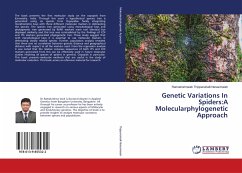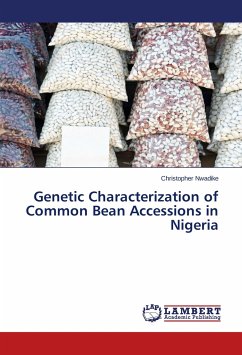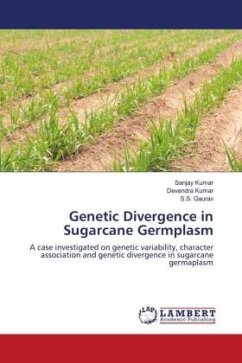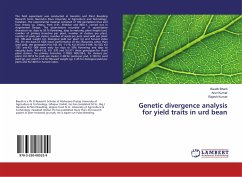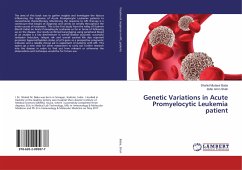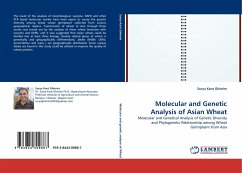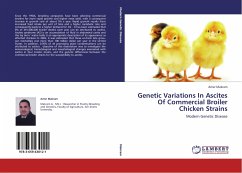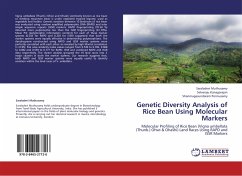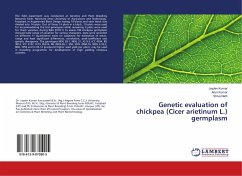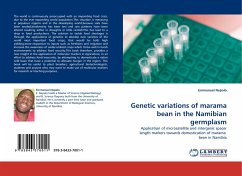
Genetic variations of marama bean in the Namibian germplasm
Application of microsatellite and intergenic spacer length markers towards domestication of marama bean in Namibia
Versandkostenfrei!
Versandfertig in 6-10 Tagen
32,99 €
inkl. MwSt.

PAYBACK Punkte
16 °P sammeln!
The world is continuously preoccupied with an impending food crisis, due to the ever expanding world population.This situation is menacing in populous regions and in the developing world,because soils have been eroded,biodiversity has been lost and rain patterns have been altered resulting either in droughts or little rainfall.This has lead to a drop in food productions. The solution to tackle food shortages is through the applications of genetics to develop new varieties of the world most important food crops, that would be both high yielding,more responsive to inputs such as fertilizers and ...
The world is continuously preoccupied with an impending food crisis, due to the ever expanding world population.This situation is menacing in populous regions and in the developing world,because soils have been eroded,biodiversity has been lost and rain patterns have been altered resulting either in droughts or little rainfall.This has lead to a drop in food productions. The solution to tackle food shortages is through the applications of genetics to develop new varieties of the world most important food crops, that would be both high yielding,more responsive to inputs such as fertilizers and irrigation and increase the awareness of under-utilized crops which thrive well in harsh environments to address food security.This book therefore, provides a new insight in the application of molecular markers in Agriculture, in an effort to address food insecurity, by attempting to domesticate a native wild bean that have a potential to alleviate hunger in the region. This book will be useful to plant breeders, agricultural biotechnologists, students and anyone who may want to make use of molecular markers for research or teaching purposes.



